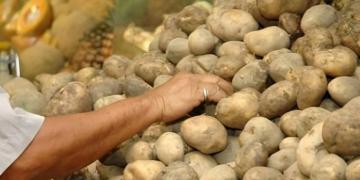EEUU: Genetic Engineering and Risk in Varietal Selection of Potatoes
A research team at Montana State University examines the farm management decision of whether to adopt a new, genetically engineered potato variety, in particular three GMO Innate varieties developed by Simplot.

The researchers note that the new varieties have potential human health benefits over other potato varieties, resist browning and bruising, and also resist late blight. If these new potato varieties are adopted, they would represent one of the first GE crops primarily consumed in a low-processed form in the United States.
In March of 2017, commercial use of three new GE potato varieties was approved by the USDA. The new varieties have potential human health benefits over other potato varieties, resist browning and bruising, and also resist Late Blight, the disease that caused the Irish Potato Famine. If these new potato varieties are adopted, they would represent one of the first GE crops primarily consumed in a low-processed form in the United States. Currently, most GE crops such as alfalfa, corn, soybeans, and sugar beets are either highly processed into final consumer products or fed to livestock. This case describes the potato industry with a particular reference to seed potatoes and discusses issues surrounding GE potato varieties. The case is built around a leading seed potato grower in Montana.
The USDA defines five different types of risk in agriculture: production, market, financial, institutional, and human or personal risk (USDA ERS 2016). The decision of whether to plant a new GE variety with consumer-relevant or producer-relevant attributes must account for both market and production risks. In the case of the currently available Simplot varieties, a grower must consider both reductions in disease risk, as well as increased market risk—price differences from market resistance to GE products, according to the research.
To explore how commercial and seed potato producers viewed these different risks, the researchers conducted an experiment at the Montana Seed Seminar in November of 2016. A group of 83 seed and commercial potato growers completed a risk tolerance assessment and were then asked to choose between a more expensive seed selection with a relatively low disease risk and a less expensive option with more disease risk. While on average, growers with lower risk tolerance scores were willing to pay more for the less-risky option, the results were not statistically significant.
Growers selected the more expensive, less risky option approximately 75% of the time among all choices. Slightly more than half (53%) stated that their selection either would not change or ‘would depend’ if one of the choices was GE. As a part of the same experiment, growers reported the relative importance of a series of traits in determining which seed to grow. Disease risk played an important role and, in fact, was the number two determinant in seed selection. But the relationship between the seed buyer and seller was by far the most important characteristic. This finding underscores both the importance of trust in variety or technology adoption and market development, says the study.
Fuente: https://www.potatobusiness.com/business2/2292-research-genetic-engineering-and-risk-in-varietal-selection-of-potatoes




